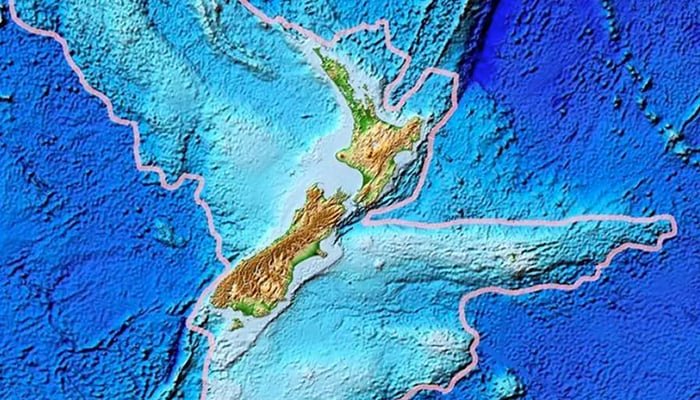In a groundbreaking discovery that has been eluding scientists for the past 375 years, researchers have identified the eighth lost continent, now named “Zealandia” or “Te Riu Moana.” This newly unveiled continent lies beneath the ocean surface, with an astonishing 94% of its landmass submerged.
According to international media reports, experts in the fields of geology and seismology have meticulously reconstructed Zealandia’s map using data derived from samples of rocks found on the ocean floor. The full details of this research have been published in the journal “Tectonics.”
Zealandia spans an expansive 49 million square kilometers, making it six times larger than Madagascar. Scientists emphasize that this discovery shatters previous records, as it is the smallest, thinnest, and newest continent on Earth.
In reality, the world now boasts eight continents, with Zealandia being the latest addition. Its remarkable 94% submersion places it in a league of its own, resembling New Zealand’s geography, which features a few isolated islands amidst vast expanses of water.
Exploring Zealandia has always been a formidable challenge, primarily due to its mostly submerged state. However, researchers have embarked on a quest to study this hidden continent by analyzing samples of rocks and other specimens obtained from the seafloor.
Zealandia’s origin dates back to the ancient supercontinent of Gondwana, which existed approximately 550 million years ago. Over time, geological processes led to its separation and submergence beneath the ocean’s surface.
This discovery not only expands our understanding of Earth’s geological history but also raises questions about the planet’s biodiversity and the potential for unique ecosystems in the largely uncharted waters surrounding Zealandia. Scientists anticipate that further research will shed light on the continent’s geological characteristics, its role in Earth’s history, and its impact on the surrounding marine environment.
The revelation of Zealandia serves as a testament to the continuous advancements in scientific exploration and underscores the profound mysteries that still exist beneath the world’s oceans. As scientists delve deeper into the study of this newly uncovered continent, humanity stands on the threshold of unlocking a treasure trove of knowledge about our planet’s hidden past.


